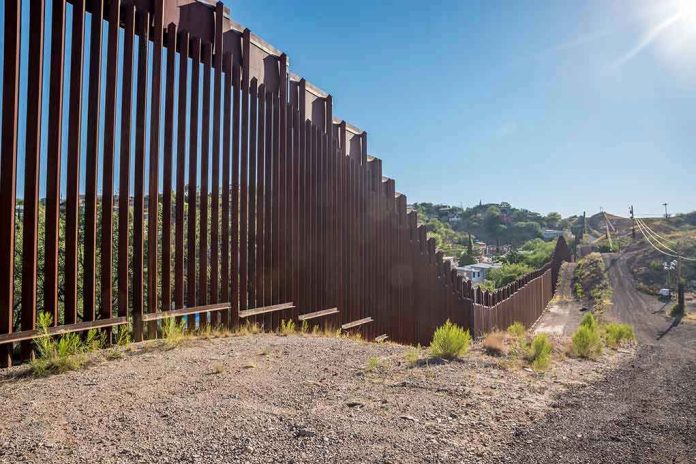
President Trump’s administration is preparing a covert anti-cartel mission in Mexico, igniting fierce debate over sovereignty, national security, and the future of U.S. border enforcement.
Story Snapshot
- The Trump administration is escalating anti-cartel operations with covert missions and expanded intelligence collaboration.
- Cartels have been designated as foreign terrorist organizations, granting new legal powers for U.S. intervention.
- Missions like Project Portero and Mission Firewall signal a shift from law enforcement to military-style strategy.
- Bilateral cooperation faces resistance from Mexico, raising concerns about sovereignty and potential backlash.
Trump Administration Escalates Anti-Cartel Strategy in Mexico
In 2025, President Trump’s administration launched a significant shift in its approach to combating Mexican drug cartels. U.S. officials have confirmed plans for a covert mission involving American troops, intelligence agencies, and specialized law enforcement teams targeting the Sinaloa Cartel, CJNG, and other designated terrorist organizations. This marks a dramatic escalation from past law enforcement-focused tactics, reflecting mounting frustration over the failure to stem the tide of drugs, violence, and illegal immigration impacting American communities. The operation’s scope includes limited ground actions, drone strikes, and cross-agency intelligence fusion, with the CIA and Joint Special Operations Command playing pivotal roles.
February 2025 saw the official designation of several cartels as foreign terrorist organizations, providing the Trump administration expanded legal authority to pursue covert action. This move was followed in August by the DEA’s launch of Project Portero, a bilateral initiative deploying joint U.S.-Mexico teams to dismantle cartel gatekeepers—those responsible for controlling trafficking corridors and laundering cartel profits. September brought another milestone, with the U.S.-Mexico Security Implementation Group introducing Mission Firewall, a targeted campaign against arms trafficking fueling cartel violence. These developments reflect an “all-of-government” approach, combining intelligence, military, and law enforcement resources in ways not seen under previous administrations.
Sovereignty and Cooperation: Tensions With Mexico
The Trump administration’s aggressive posture has sparked diplomatic friction with Mexico. President Claudia Sheinbaum and her security cabinet have publicly rejected unilateral U.S. action, insisting that any cross-border operations be coordinated with Mexican authorities. Despite these calls for partnership, American officials remain steadfast in their readiness to act if cooperation falters. The power dynamic is shaped by U.S. technological superiority and intelligence assets, but ground operations rely heavily on Mexican support and access. Cartels continue to exploit gaps in coordination and jurisdiction, threatening both nations’ security.
Planning and preliminary training for covert operations are underway, but final deployment decisions are still pending. Intelligence sharing and joint targeting have accelerated, yet the contradiction between U.S. interventionism and Mexico’s sovereignty remains unresolved. This tension raises questions about long-term regional stability and the risk of unintended consequences, including cartel retaliation or escalation of violence in contested territories.
Impact on Border Security, U.S. Communities, and Conservative Values
For American border communities, the Trump administration’s strategy promises strengthened security and a renewed commitment to law and order. By designating cartels as terrorist organizations, officials gain powerful new tools to disrupt trafficking routes and target cartel leadership. Short-term impacts include increased pressure on criminal networks and heightened diplomatic challenges. Long-term, the mission could disrupt cartel command structures, reduce drug flows, and reinforce constitutional protections for U.S. citizens—key concerns for conservatives frustrated with past government inaction. However, risks remain: unilateral action may undermine Mexico’s government and fuel anti-American sentiment, while cartel violence could spill over, affecting innocent civilians and law enforcement personnel.
Report: Trump Administration Planning New Mission In Mexico Against Cartels – Great America News Desk https://t.co/RKu5uvSsX6
— David A. Landes (@LandesOne) November 3, 2025
Industry experts and law enforcement leaders praise the integrated, intelligence-driven approach as essential for dismantling sophisticated criminal organizations. DEA officials highlight the importance of fusion cells for actionable intelligence, while some analysts warn of the dangers posed by diplomatic fallout and backlash from Mexican civil society. All agree that the outcome will hinge on the balance between decisive action and sustained bilateral cooperation—an imperative in the fight against transnational organized crime.
Sources:
Trump Administration Reportedly Plans Covert Anti-Cartel Operation in Mexico
DEA launches bold bilateral initiative to dismantle cartel gatekeepers
DNI Establishes Intelligence Fusion Cell Targeting Cartels
Designating Cartels as Foreign Terrorist Organizations
U.S.-Mexico Security Implementation Group Launches Mission Firewall





